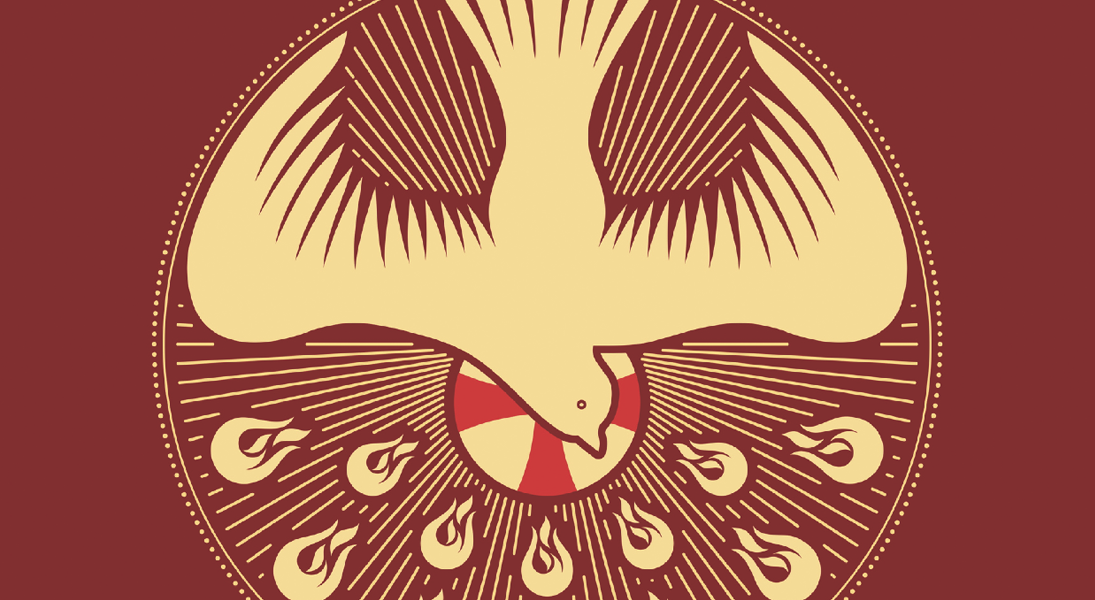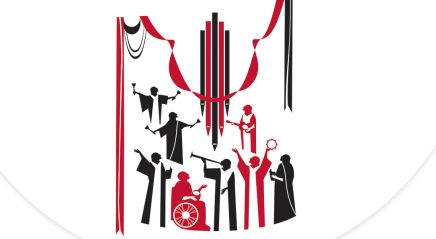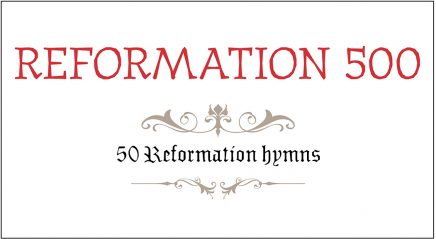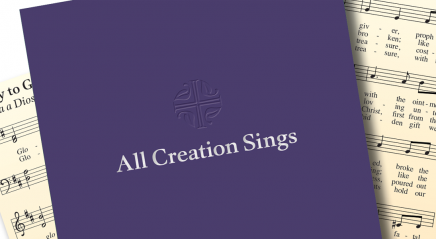Author’s note: Lutherans and other hymn lovers may be surprised to learn how many of their favorite hymns come from medieval texts. Can anything good come out of the “Dark Ages”? Martin Luther thought so; he adopted and adapted multiple hymn texts from the Middle Ages, both Latin and German. This four-part series will explore examples of pre-Reformation hymn texts in their historical contexts and sequence.
The word “medieval,” parallel to “primeval,” means the Middle Ages. But the middle of what? To the 15th-century Renaissance authors who coined the term, history had three parts: a glorious ancient past, its “rebirth” in their own time and something dismal in between, an unenlightened middle era.
The first part (500-1100 A.D.) of the Middle Ages has even been called the Dark Ages, but some luminous hymn texts from that time testify otherwise. The mighty Te Deum, partly preserved in “Holy God, We Praise Your Name” (Evangelical Lutheran Worship, 414; see also 227-28), stems from early in this period, anonymous in source and majestic in scope. Our Palm Sunday processionals use “All Glory, Laud, and Honor” (ELW, 344) by Theodulph of Orleans (760-821), a Benedictine abbot from Spain who also served as a bishop in Charlemagne’s realm.
The monastic Order of St. Benedict also frames the classic early medieval Pentecost hymn “Come, Holy Ghost, Our Souls Inspire” (translated by John Cosin; Lutheran Book of Worship, 472-73), probably by Rabanus Maurus (776-856), a German abbot and then bishop. It is also known as “Creator Spirit, Heavenly Dove” (ELW, 577-78) and in many other translations, including one by the English poet John Dryden.
Luther himself translated this Latin hymn into German (see Luther’s Works 53:260-62) and put it in the first Lutheran hymnals in 1524, along with two other late-medieval German hymns about the Spirit, which he expanded into “Come, Holy Ghost, God and Lord” (ELW, 395) and “Now to the Holy Spirit Let Us Pray” (ELW, 743).
“Creator Spirit, Heavenly Dove,” the ELW version that merges various prior translations, presents God’s Spirit as the Creator, echoing Psalm 104:30 (“When you send forth your spirit, they are created”) as well as Genesis 1:2 (“A wind from God swept over the face of the waters”). The comforter, the “gift of God” that Jesus promised, is the “fire of love” and “the soul’s anointing from above” of Pentecost itself (verse 2). In the medieval Benedictine context of daily prayers this was a morning hymn at the third hour of the day (9 a.m.), when God’s Spirit first came upon and filled the apostles.
Echoes of Pentecost
The third verse brims with scriptural allusions, some of them cryptic to us:
In you, with graces sevenfold, we God’s almighty hand behold.
The “graces sevenfold” refer to the gifts of the Spirit in Isaiah 11, such as “wisdom and understanding, counsel and might,” as still used in our prayer at confirmation. Why call the Spirit “God’s almighty hand,” literally, a “finger on God’s right hand”? Jesus had said that his power of exorcising demons was by the “finger of God” (Luke 11:20) and by the “Spirit of God” (Matthew 12:28), leading some German preachers in that time to call the Spirit the finger of God.
In verse three “tongues of fire proclaim to all the world” again echoes Pentecost and Jesus’ promise in Matthew that when the disciples testify, it will be the “Spirit of your Father speaking through you” (Matthew 10:20). Generations of preachers, from the Middle Ages to the present, have used this timeless text, with its historic melody, as their ordination prayer.
Verse six hints at a doctrinal dispute between the Latin and Greek theologians when Rabanus was archbishop of Mainz.
Teach us to know the Father, Son, and you, of both, to be but one.
To claim that the Spirit is “of both” the Father and the Son (see also John 15:26 and Romans 8:9) seems to favor the Latin word filioque added to the Nicene Creed, specifying that the Spirit “proceeds from the Father and the Son.” The Eastern Orthodox defended the original wording, maintaining that the eternal source of the Spirit is the Father alone. Centuries of dialogue have not yet resolved this church-dividing issue. However, the line primarily means that faith is a gift, that God’s Spirit grants us to know the Father and the Son.
As explained in Luther’s Small Catechism, we cannot on our own believe in Jesus Christ, but the Spirit has called and enlightened us, keeping us in the faith and in communion with the whole Christian church throughout its long history—including the Middle Ages.
Next: The July-August installment in this series will examine “O Sacred Head, Now Wounded” (ELW, 351-52), based on a poem by Bernard of Clairvaux.








